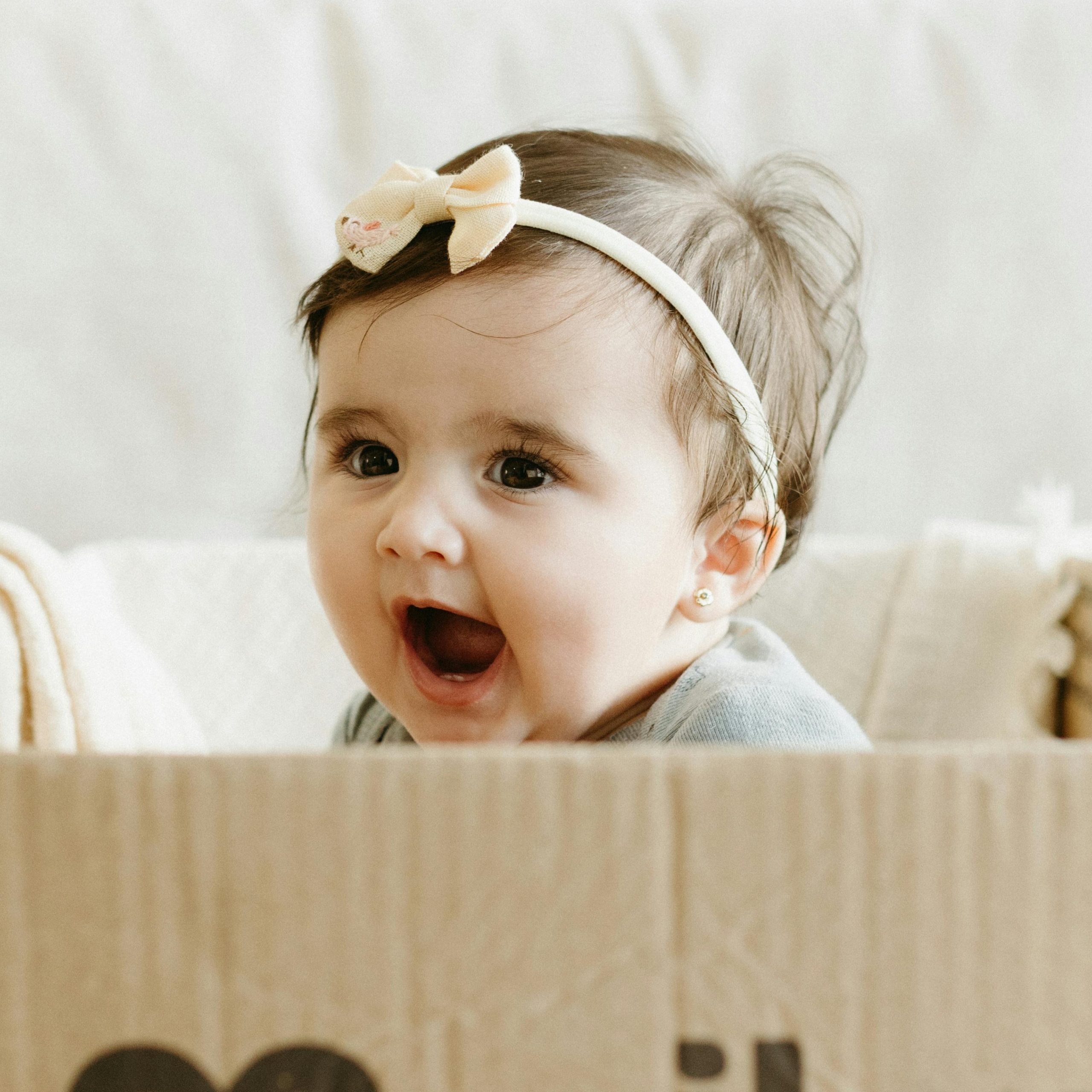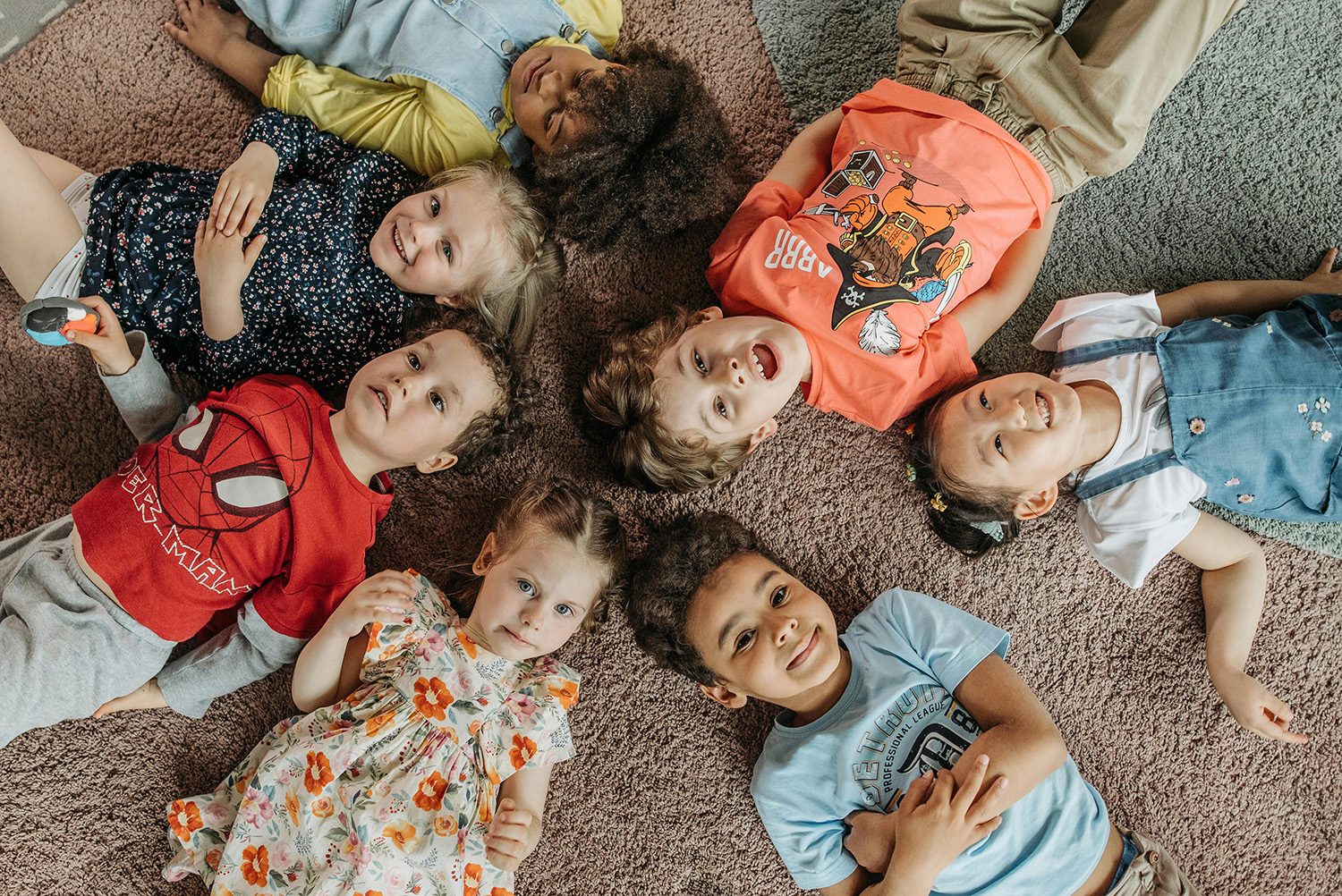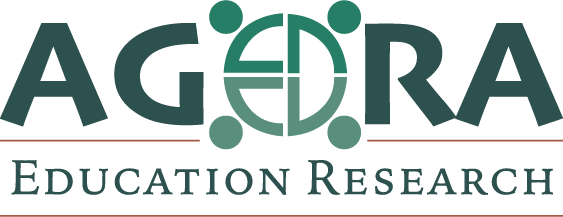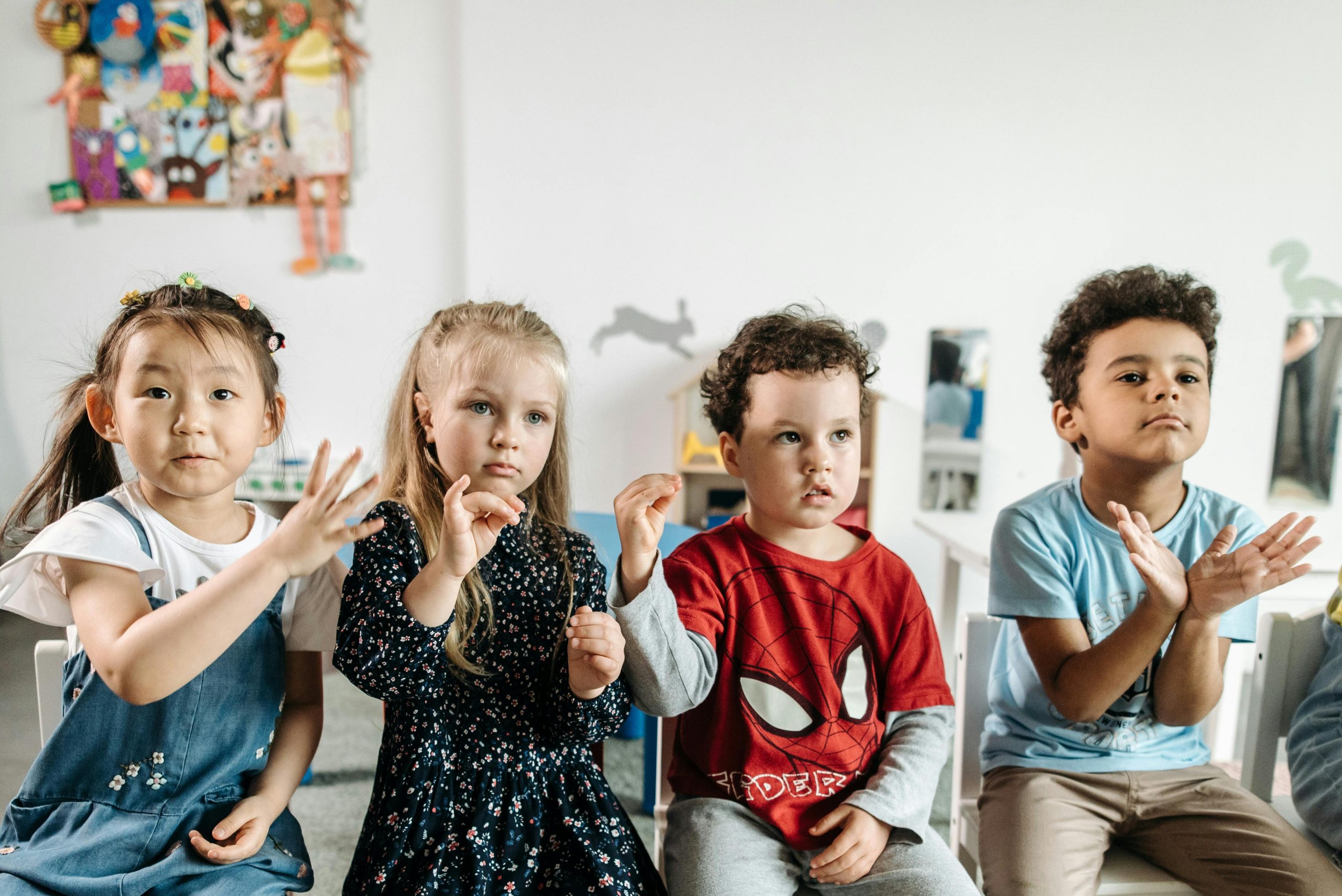Hannah is a few days shy of her second birthday. A November baby, this is her second Halloween. She looks at the candy in the plastic pumpkin that she gleefully filled trick or treating in the neighborhood. She selects a candy bar with a red wrapper and takes it to her mother. “What this,” she asks. Her mother looks at what she is holding. “A Kit Kat,” her mother explains. Excited, Hannah demands, “Open it! Open it!” Her mother opens the wrapper. Hannah looks at what is inside, stomps her foot, and walks off. Had she been expecting a kitty cat?

This moment with Hannah demonstrates how much learning happens in a child’s first few years of life. The human brain grows faster during these early years than during any other time1. Moreover, the rich experiences babies get when they go to the grocery store, visit relatives and play with other children promote brain development2. Connections are made that lay the foundation for higher level thinking like problem-solving, empathy and self-control. Infants and toddlers gain new words and learn about feelings from interacting and playing with others3. Children who miss-out on these rich experiences are at risk for never fully developing these skills4.
So what happens when the world shuts down and children aren’t able to have these varied experiences? How does that impact their learning and readiness for formal schooling?
The COVID Generation
The COVID-19 pandemic dramatically disrupted the lives of families with young children. Daycare programs closed. Many states issued stay-at-home orders. Many parents were challenged to both take care of their children and work from home5. Many infants and toddlers had reduced exposure to family members and friends outside their immediate households6. As a result, infants and toddlers spent most of their earliest years stuck at home7. They were unable to go to places like the grocery store or to visit relatives. While some families found these changes stressful, others report having felt more feelings of togetherness.

The early life experiences of babies and toddlers learning and growing during the pandemic were different in a lot of ways from those who grew up in a different time. They likely did not experience as many different places and people as they normally would; they may not have had as many rich experiences as their pre-pandemic peers. We do not know how these different experiences affected their development. Research has suggested that pandemic toddlers have some delays in communication and problem-solving skills compared to toddlers before the pandemic8. Also, far fewer of these toddlers had the rich learning experiences found in preschool and prekindergarten as reporting shows that enrollment in prekindergarten programs in the years after the pandemic declined, in some states as much as 30 percent. Another way that these toddlers differ from their pre-pandemic peers is that fewer of them were identified as having special needs and referred to services than in previous years9.
A Critical Study Cut Short
In the fall of 2023, the United States Department of Education began an important research study called the Early Childhood Longitudinal Study, Kindergarten Class of 2023-24 (ECLS-K:2024). For more than 20 years the Early Childhood Longitudinal Study (ECLS) program has provided educators, families, researchers, and policy makers with the information they need to improve children’s early school experiences and set them up for success. The ECLS program collects data from parents, teachers, and principals, and directly assesses children’s academic and social skills. All this information is used to improve the educational experiences of students.
The ECLS-K:2024 focused its research on kindergarteners whose early years coincided with the COVID-19 pandemic. These pandemic toddlers were born in 2018 and started kindergarten in the fall of 2023. Given how different their early years were, it is likely that they started school with different skills and competencies than kindergarteners did in the years before the pandemic. This means that their teachers and schools needed different strategies to help ease them into school and prepare them for school success.
This research provides an opportunity to describe what skills and competencies these children brought to kindergarten. Parents and guardians reported on their family’s pandemic experiences. Thus, the ECLS-K:2024 can provide information on America’s pandemic toddlers’ early learning environments. Teachers and principals were asked about technology use and classroom instruction. The ECLS-K:2024 also provides information on kindergarten teachers’ instructional practices.
Because the ECLS study program has information from students who started kindergarten in 1998 and in 2010, it is possible to see how the kindergarteners of the ECLS-K:2024 differ from generations before them. Many of these differences can be attributed to the pandemic, allowing us to better understand the impact of the pandemic on this generation. The ECLS study program has highlighted changes in school experiences over time. For example, kindergarteners in 2010-11 had more books and were more often read to than kindergarteners in 1998-99. Also, kindergarten classrooms in 2010-11 were found to be more academically focused than those in 1998-99. Kindergarteners in 1998-99 had more playtime10. The ECLS-K:2024 can show us how kindergarten changed as a result of social distancing and virtual learning.
The ECLS-K:2024 is important because it will show us:
- How pandemic children compared to earlier generations
- What skills they brought to kindergarten
- How teachers adapted their instruction
- What support these children needed most
But on February 10, 2025, the ECLS-K:2024 was cancelled.
The federal Department of Education terminated this research as part of massive cuts. The researchers had already collected kindergarten data and were preparing to visit first-graders in the spring 2025. That work has stopped. The data that was collected is sitting unanalyzed. This research is simply not going to be finished nor will it likely be made available to the public.
What Decision Makers Are Missing
The ECLS-K:2024 was collecting information from students, families, teachers and schools all across the country. This research gathered information on the pandemic toddlers’ reading, math, and memory skills at kindergarten entry to see how those skills differed from pre-pandemic kindergarteners. The ECLS-K:2024 It also looked at how well these children understood and controlled their feelings and behavior relative to pre-pandemic kindergarteners. The ECLS-K:2024 compiled all the different instructional strategies and classroom practices being used post-pandemic, including technology use. The ECLS-K:2024 asked about preschool and prekindergarten experiences to learn whether these experiences improved children’s readiness for school.
Technology advances during the pandemic were dramatic and changed the way many classrooms function. For example, in many schools, smart boards replaced blackboards. Many more children complete classwork on Chromebooks. The ECLS-K:2024 collected information from teachers about the use of digital tools and asked parents to report on their family’s technology use. The ECLS-K:2024 could describe how technology has impacted school classrooms and instruction in the United States.
All this information has been lost. We are missing the opportunity to understand how pandemic experiences affected the development and learning of these children. We can’t compare them to pre-pandemic generations. We do not know how their classrooms changed as a result of technology advances. We also are missing the chance to see how they progress through elementary school.
Why This Matters
Without the information that the ECLS-K:2024 was collecting, we are essentially in the dark. We just don’t know what our youngest students need to be successful in school. Teachers do not know how to ensure their school success because there is no information on what kindergarteners post-pandemic know and what they still need to learn.

We hear reports that kindergarteners are having more tantrums and trouble controlling their behavior11, but we don’t know how widespread these issues are. We can’t tell if they affect all pandemic children or just some groups. Parents are trying to understand if their child’s school struggles are typical or if they require intervention. Teachers and schools are doing their best, but without national data to guide their efforts, they aren’t sure what instructional practices and behavior programs will be most effective. Policymakers lack the information needed to make informed decisions about funding and programs.
The Bottom Line
The pandemic toddlers lived through a historic disruption at a time when their brains were rapidly developing. They had dramatically different early experiences than the children before them. Consequently, they started kindergarten with different skills and knowledge than previous generations. In addition, technology advances during the COVID-19 pandemic have changed the way schools teach and children learn. Instead of studying these changes to ensure that our youngest students are equipped to succeed, we have shut down the ECLS-K:2024 and left the information already collected to sit untouched in a cloud somewhere.
Consequently, we are at a loss as to how to advise parents, teachers and schools in their navigation of this new and changing educational landscape. Parents, teachers and schools are doing their best, but our educational leaders and policymakers are driving blind, and the casualties will be our students and schools.
- Wisconsin Council on Children and Families. (2007). Brain development and early learning. In Quality Matters: A Policy Brief Series on Early Care and Education: Vol. Volume 1 (pp. 1–2). https://files.eric.ed.gov/fulltext/ED526797.pdf ↩︎
- Halfon N, Shulman E and Hochstein M. Brain Development in Early Childhood, in N Halfon, E Shulman and M Hochstein, eds., Building Community Systems for Young Children, UCLA Center for Healthier Children, Families and Communities, 2001. https://files.eric.ed.gov/fulltext/ED467320.pdf ↩︎
- Mulkey, S. B., Bearer, C. F., & Molloy, E. J. (2023). Indirect effects of the COVID-19 pandemic on children relate to the child’s age and experience. Pediatric Research, 94(5), 1586–1587. https://doi.org/10.1038/s41390-023-02681-4 ↩︎
- First Things First. (2025, July 30). Brain development – first things first. https://www.firstthingsfirst.org/early-childhood-matters/brain-development/#:~:text=90%25%20of%20Brain%20Growth%20Happens,full%20grown%20%E2%80%93%20by%20age%205. ↩︎
- How has COVID impacted infants & toddlers’ social development? (2024, January 11). First Five Years Fund. https://www.ffyf.org/resources/2022/09/how-has-covid-19-impacted-infants-and-toddlers-social-development/ ↩︎
- Mulkey et al, 2023. ↩︎
- First Things First. (2025, July 30). ↩︎
- Johnson, S. B., Kuehn, M., Lambert, J. O., Spin, J. P., Klein, L. M., Howard, B., Sturner, R., & Perrin, E. M. (2024). Developmental Milestone Attainment in US Children Before and During the COVID-19 Pandemic. JAMA pediatrics, 178(6), 586–594. https://doi.org/10.1001/jamapediatrics.2024.0683 ↩︎
- First Five Years Fund, (2024, January 11). ↩︎
- Bassok, D., Finch, J. E., Lee, R., Reardon, S. F., & Waldfogel, J. (2016a). Socioeconomic gaps in early childhood experiences: 1998 to 2010. Aera Open, 2(3), 2332858416653924. ↩︎
- Heubeck, E. (2025, July 31). ‘Crying, yelling, shutting down’: There’s a surge in kindergarten tantrums. Why? Education Week. https://www.edweek.org/teaching-learning/crying-yelling-shutting-down-theres-a-surge-in-kindergarten-tantrums-why/2025/07 ↩︎


Leave a Reply to Carolyn Grim Cancel reply